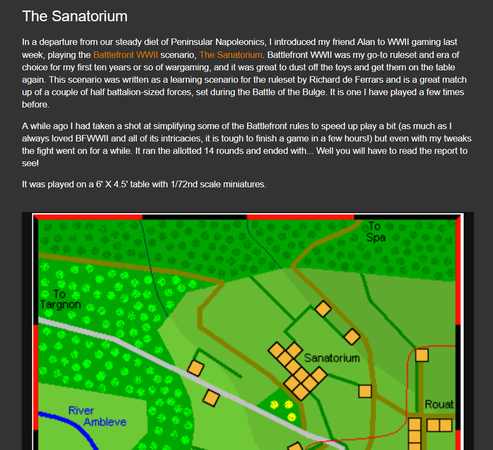
A West Point Graduate's Memoir of World War II
304 pages. 1 page of B&W pictures. No maps. No index.
TABLE OF CONTENTS
1 - Childhood and Early Years
2 - West Point
3 - Fort Sill / Fort Sam Houston / Fort Knox
4 - 1942 Stateside
5 - Casablanca
6 - Tunisia
7 - Sicily
8 - England
9 - Getting Ready
10 - June 6, 1944
11 - Normandy
12 - Breakout and the Race Across France
13 - Stalled
14 - To the Ardennes
15 - To the Elbe
16 - The Ending
At the exact moment that Don Bennett stepped on the stage to accept his West Point diploma, German tanks rumbled into the suburbs of Paris. By 1942, he was with "something entirely new" - a mobile armored artillery battalion - when the U.S. Army landed in North Africa. Bennett continued in action throughout the war: in Sicily (he was in the next room when Patton famously slapped the soldier), at D-Day (taking command of infantry at Fox Green), Normandy, the Breakout, the Ardennes (helping hold the northern shoulder of the Bulge), and finally, to the Elbe.
An unusual touch is that this book is written from the perspective of helping modern readers understand World War II - so the author goes out of his way to explain things to a younger generation. When discussing D-Day, he even makes comparisons to Saving Private Ryan and Stephen Ambrose's works.
While the book provides a good overview of the war - along with the author's occasionally pithy reflections on generals and strategy - it provides only glimpses of tactical situations. The wargamer can expect to find inspiration for scenarios, but will have to fill in the gaps (such as maps and TO&E's) himself.
In Tunisia (pp.126-7):
You see, as well, the horrible destruction that you deal out, especially in a running battle across the plains and hills of Africa, columns of greasy smoke and bodies. The nightmares linger.
We had one nasty encounter with a German artillery battalion that still bothers me. Their fire was so good, that one of the first rounds in sent me sprawling, muddy clay covering me from the burst. We were on a totally flat flood plain, and we were definitely at a tactical disadvantage, and yet we beat them. Both of us were on the move, the folds of the land keeping us concealed from each other as we moved along the edge of a lake, and then suddenly they were there, just fifteen hundred yards away, murderously short range out there on an open plain. Our lead battery slammed to a stop and immediately went into firing position. The Germans scrambled as well. It was a race. The one big difference between them and us: Their entire battery was horse drawn, like something out of a different age.
The title of the book reflects the author's theme - that it was core American values, and specifically the inspirational words of West Point's Cadet Prayer - that both sustained the author through the most dangerous situations of the war, and that were fundamentally responsible for American success in WWII.
On the beach, D-Day (p.204):
I had to act, to do something, anything, and everything within me screamed that I had to do it quickly. I felt, at that moment, that we were all dead men anyhow, and the training, and the pride in what I was supposed to be, told me that if I was going to die, I might as well do something, anything, in those few remaining minutes that just might make a difference.
I think, as well, that lingering somewhere in the back of my mind was the Cadet Prayer. That might seem quaint to many today, but the old saying about there being no atheists in foxholes is true. That prayer, across the years, had conditioned me for what was ahead, to go up that sloping three hundred yards of beach, a killing ground as deadly as any faced by soldiers in American history.
Reviewed by ![]() Editor in Chief Bill
Editor in Chief Bill ![]()
![]() .
.









